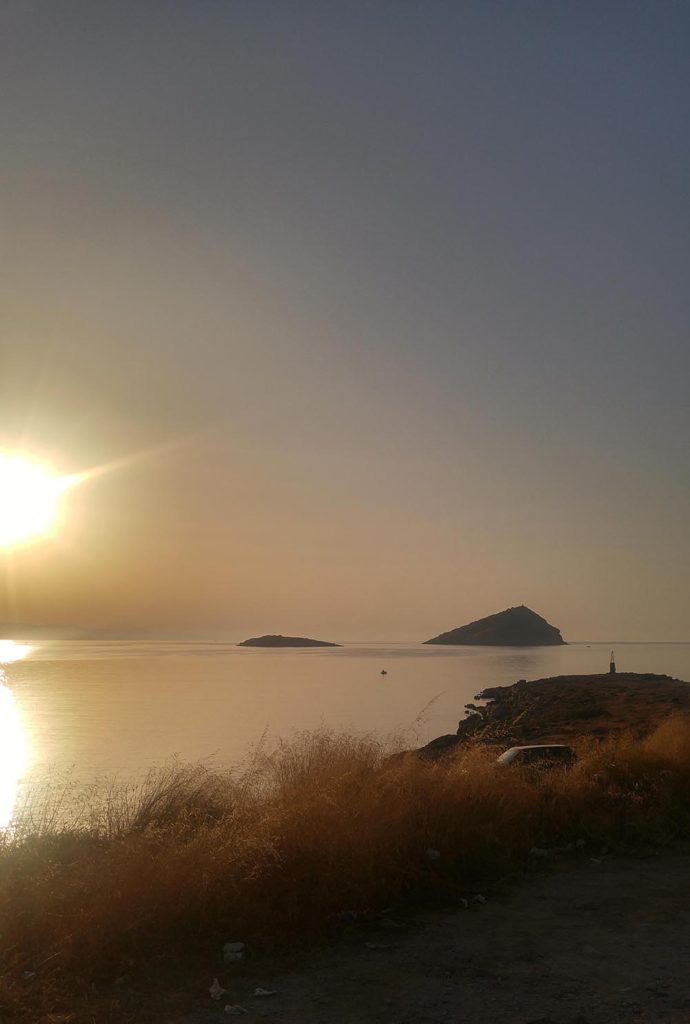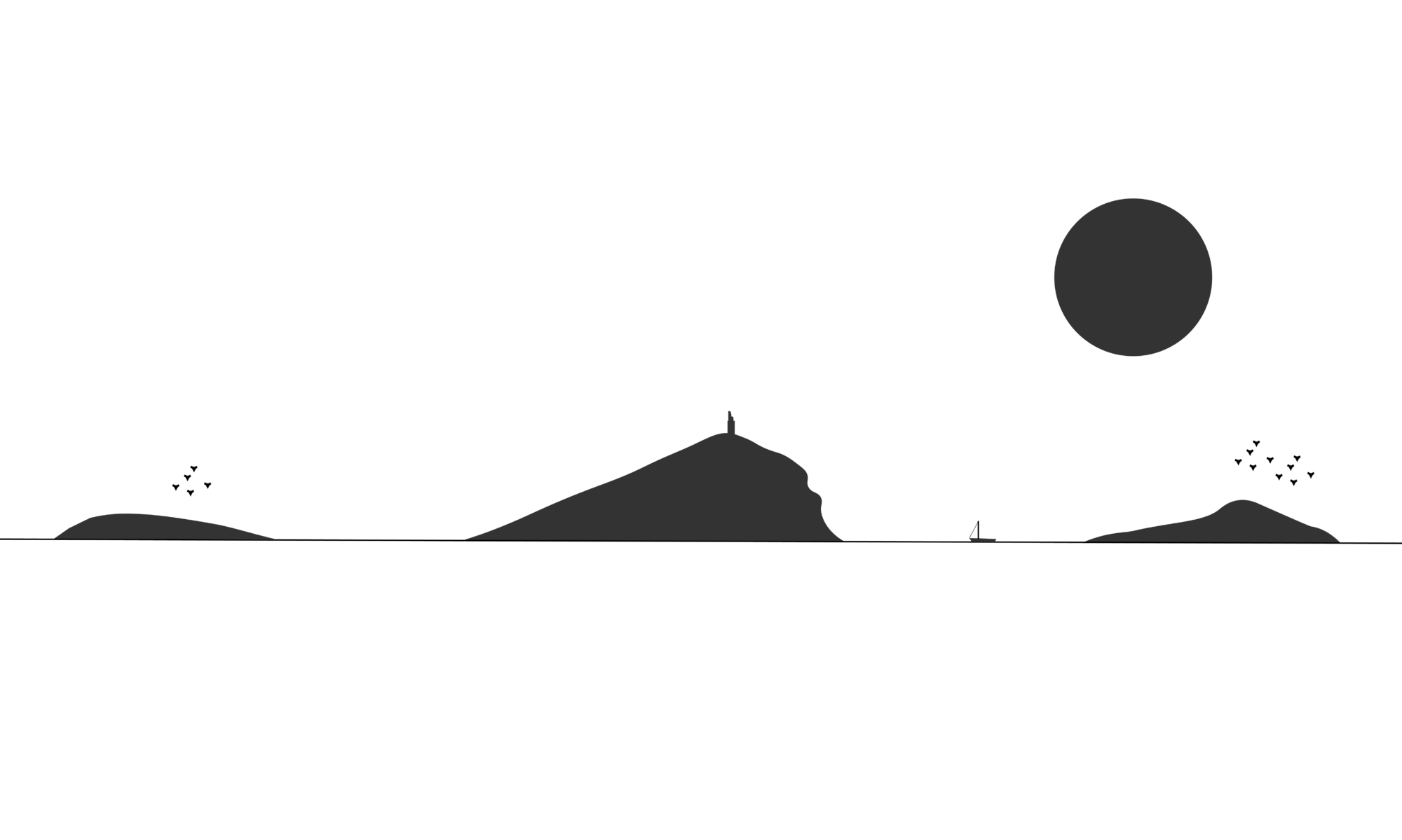Jennifer MacPherson is a University of Toronto undergraduate student currently heading into a fifth and final year of coursework. She is a standout member of the Classics department, widely admired by professors across a range of subjects from Greek archaeology to Latin verse, and the kind of young person that makes me wish I’d had my life together better at that age! I met Jenny during my very first day of teaching at the University of Toronto in September 2017, and I’ve been lucky to work with her in various circumstances since then – she has been in a number of the courses I’ve taught, was on a team of undergraduate RAs I supervised as part of a Jackman Humanities Institute summer program, co-authored a research paper with myself and Irum Chorghay that was published this year in the AJA, and was a founding student member of the BEARS project in 2019. Since her normal summer job of working at a children’s camp is off the table this year for obvious reasons, she recently had some spare time to talk with me about life in Toronto Classics, her experiences in Greece last summer, and strategies for enduring the pandemic lockdown here in the big city.
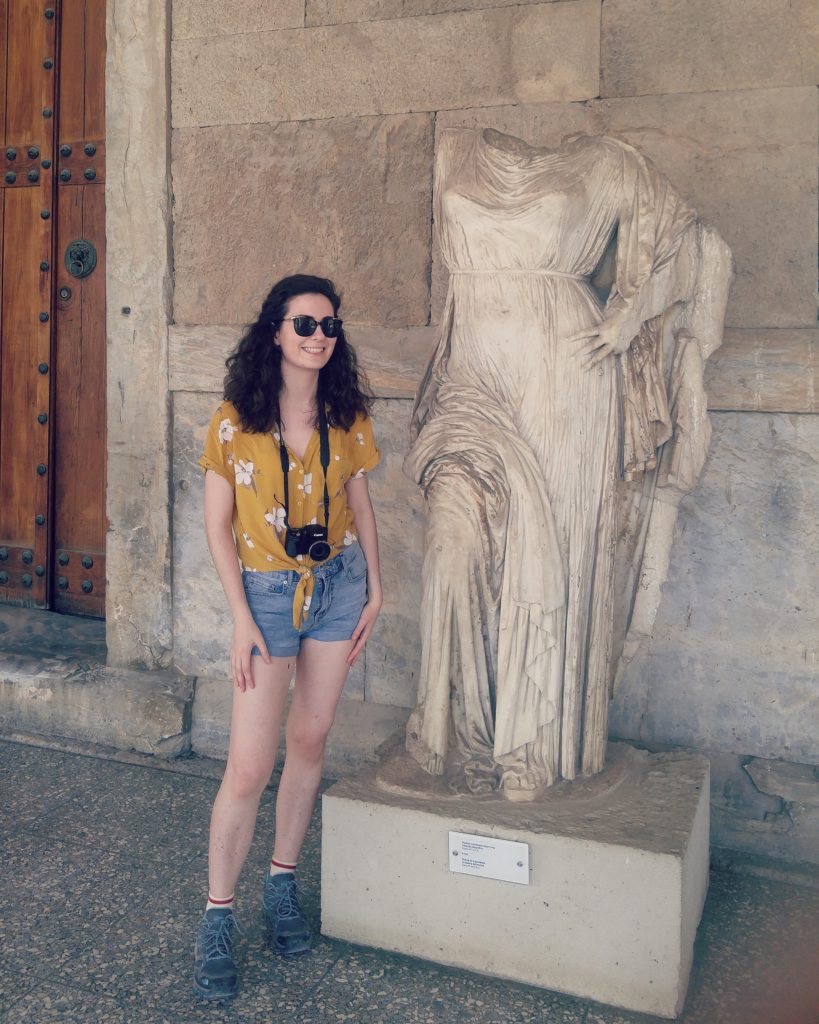
SCM: I first met you when you in the fall of 2017 when you totally hit it out of the park in my Greek 101 class and my Greek history class. So, we’ve known each other for several years now. But how’d it come to pass that you ended up taking Greek and Greek history and majoring in Classics?
JM: Hmmm, I don’t have a good story – I think I just fell into it through a series of random circumstances. Some high schools have a Classics program or a club, but my public school didn’t have any of that. When I was really young, instead of science fairs we had history fairs – so you’d make a papier mache castle instead of a papier mache volcano, that type of thing – and I do remember using a bedsheet as a costume and talking about ancient Greek houses at one point. So maybe that was something formative.
When I got to university, I always knew I liked history, but then I thought I might do English. But already in my first year I realized that I definitely did not want to do an English major. Then I was thinking about Canadian history for a while, but that didn’t pan out either. I guess I ended up swinging kind of really far away from English eventually and thinking, ‘maybe I’ll do archaeology!’ But at the end I kind of ended up landing in the middle with Classics and Classical literature.
SCM: I like that – you fled from the cruel nightmare of the English department into the welcoming bosom of Classics! But what I really like is the idea of a papier mache castle-volcano hybrid. Like, did the papier mache castle have any baking-soda pyrotechnics involved?
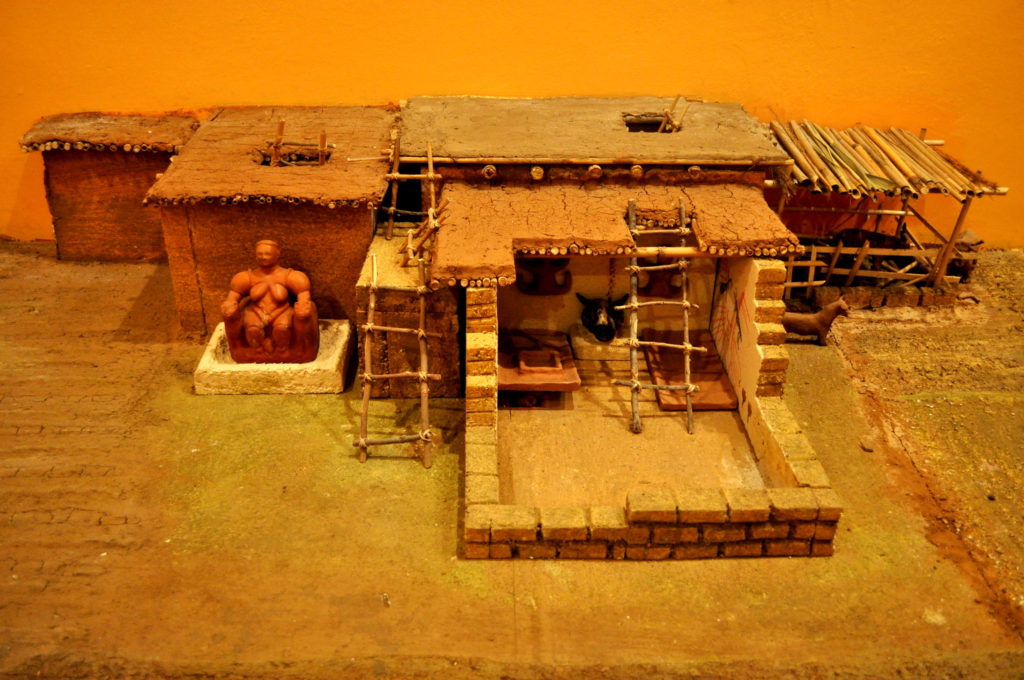
JM: No, nothing like that – no eruptions or explosions!
SCM: I guess that’s one downside of the history fair vs. the science fair: fewer baking soda eruptions. I actually had a friend in university who submitted a baking soda volcano as a final project for an upper level Earth Sciences seminar, and that did not go well for him, but it became kind of legendary. Anyway, now that you landed on Classics as a major, what do you like about the coursework or the department overall?
JM: One thing I really like about it is that contains a lot of the different things that I had wandered around being interested in before. For instance, you can do the languages – I’d always liked learning French, and I enjoy learning the languages in Classics. But you also read the literature and do hands-on stuff like archaeology. So, there are a lot of different things within the department, and I like all those things, so it fits my various interests really well.
Classics is also really flexible these days and I like that you can bring all kinds of other material into it. For instance, I really like horror literature. That’s pretty much the only thing I still like to do with English now: study fantasy, horror, and sci-fi. And I’ve been able to integrate that into Classics – I wrote a paper on Seneca’s Phaedra and I used horror literary theory to analyze the text. So, yeah, I guess what I like is that there is a ton of stuff that can be applied to Classics and vice versa.
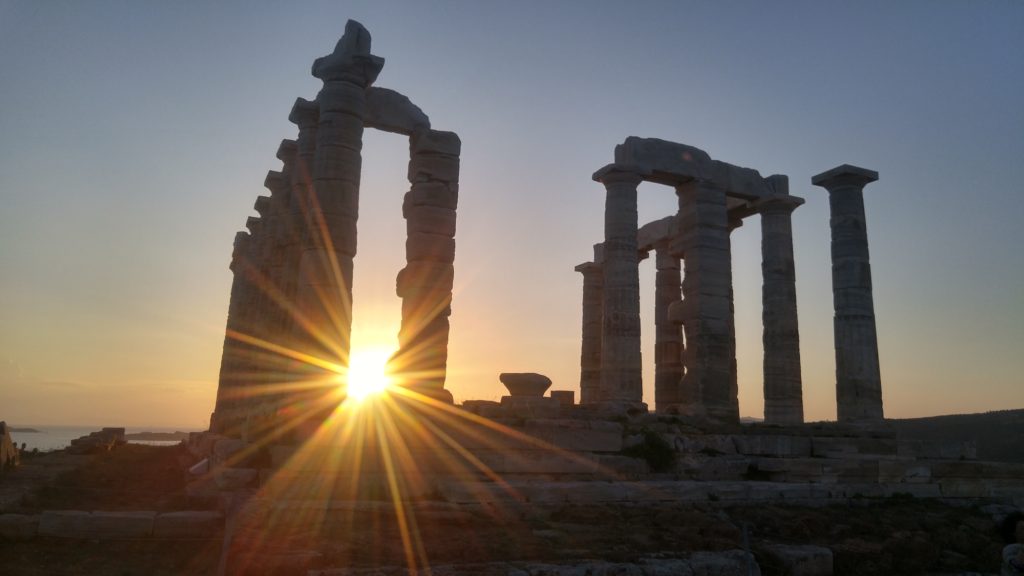
SCM: I totally agree with you – that’s one of my favorite things about the field too. It’s a major that contains a multitude of methods even though there is kind of a coherent theme. What you’re actually doing on a day-to-day basis varies a lot.
JM: Yeah, exactly. I really wanted to do a film course at some point in university, but I could never fit it in to my schedule around all of the requirements. But then there was a Classics in film course in the major, so I just took that, which was great.

SCM: It’s hard to get bored in a major like that. Well, I guess you could choose to be bored no matter what you do, but that just means you’re a boring person! Which, obviously, you’re not. Do you have a favorite text or object from the ancient world that makes you nerd out every time, or that you return to again and again? And what is it about that thing that gets you really excited?
JM: I really love ancient drama in general. It would be hard to choose between the Latin and the Greek stuff. Greek comedy is great, but I also like Latin tragedy, especially Seneca. But you know, how do you choose between Seneca and Aristophanes? I recently wrote a paper for the Plebeian (the University of Toronto undergraduate Classics journal) about pubic hair depilation in the Thesmaphoriazusae and it was the most bonkers paper I’ve ever written, but also the best paper I’ve ever written. Maybe Aristophanes’ comedies in general are the thing that I really geek about the most.
SCM: It is consistently amazing to me that his plays can still be funny 2,500 years later.
JM: Exactly! They are still really, really funny. It just goes to show that fart jokes are universal. They last throughout time.
SCM: It’s true! That’s not one of the lessons that people anticipate they will take away from a Classics major, but it is an important one – people have always loved fart jokes. Since the beginning of time! And they will always be with us. It would be too bad if science invents a way to keep people from farting. Maybe by 2060 people will be reading Aristophanes and they won’t get the fart jokes anymore without consulting some scholiast from the earlier 21st century or something because farts have become obsolete.
JM: But until that time….!
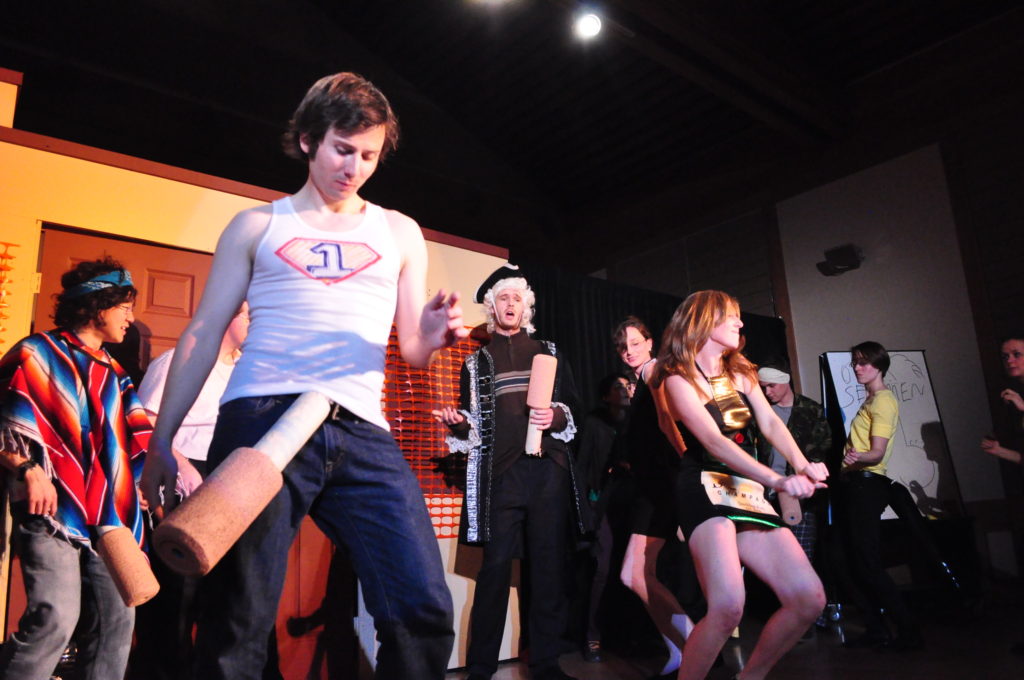
SCM: Yes, yes, let’s enjoy it while it lasts. Now, I know that last summer was your first time visiting Greece, and you and Irum did some traveling around before we started work on the BEARS project. How was your experience of Greece? Were there any favorite memories or sites that particularly stand out?
JM: We had a great time! We hit a lot of places in Greece – we started in Athens, went to Nafplio, a couple of islands – Santorini and Naxos, and Crete. It’s so great there – I really wish I was there so much right now! I have a calendar of Greece hanging on my wall and I think every day about how I’d rather be there.
The modern culture there is awesome. The food is so good! Walking around the towns and cities is great, and seeing the archaeological sites in person was cool. The archaeological sites are very closely intermingled with the modern environment, so you can get a drink at a café and then stroll right over to an ancient temple!
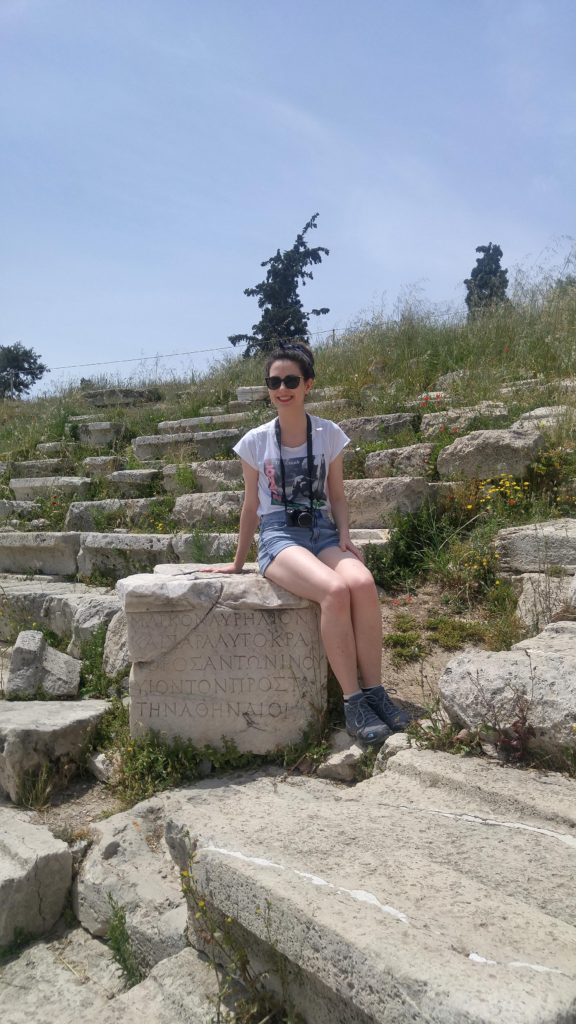
We really loved Nafplio, which has a lot of great non-ancient Greek history. We climbed the thousand steps up to the fortress and learned a lot about the history of the Modern Greek state and the evolution of its culture. The people were really nice to us too, really helpful all the time. It was an amazing experience in general.
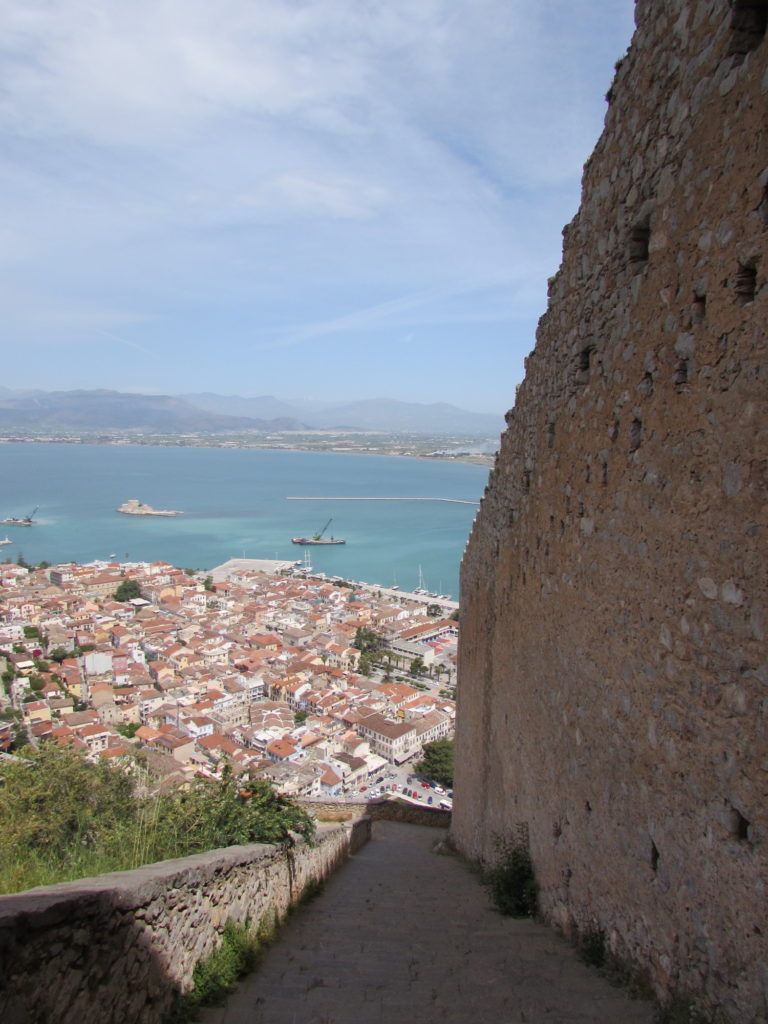
SCM: I’m glad! Greece is totally awesome in all those ways. For sure I also would rather be inside of one of your calendar scenes than my dumpy condo. Another first for you was the BEARS project, which was your first experience doing archaeological fieldwork. This was probably very different than taking a course on Seneca. What were your impressions of work on the project?
JM: I had a great time. By the end of the project I was the most fit I’d ever been in my life. Carrying those bags of sherds up and down a mountain slope really does wonders for your biceps! I remember the very first day that we went out to Raftis and Cat Pratt was showing us how to tell the difference between a piece of pottery and a rock, and then by the end I was picking up all sorts of things and could figure out whether something was Roman or Bronze Age. It was really cool how quickly the learning occurred because we were actually out there in the world doing it. I love being outdoors and have always loved hiking. Fieldwork was like that, but also being productive and finding ancient material. It was really exciting when we’d find something unusual. Once on Koroni, I was counting rooftiles and mixed in with the rooftiles was this piece of pottery that had writing on it. It just said “ED” but we were so excited about it, just losing our minds. That was really cool.
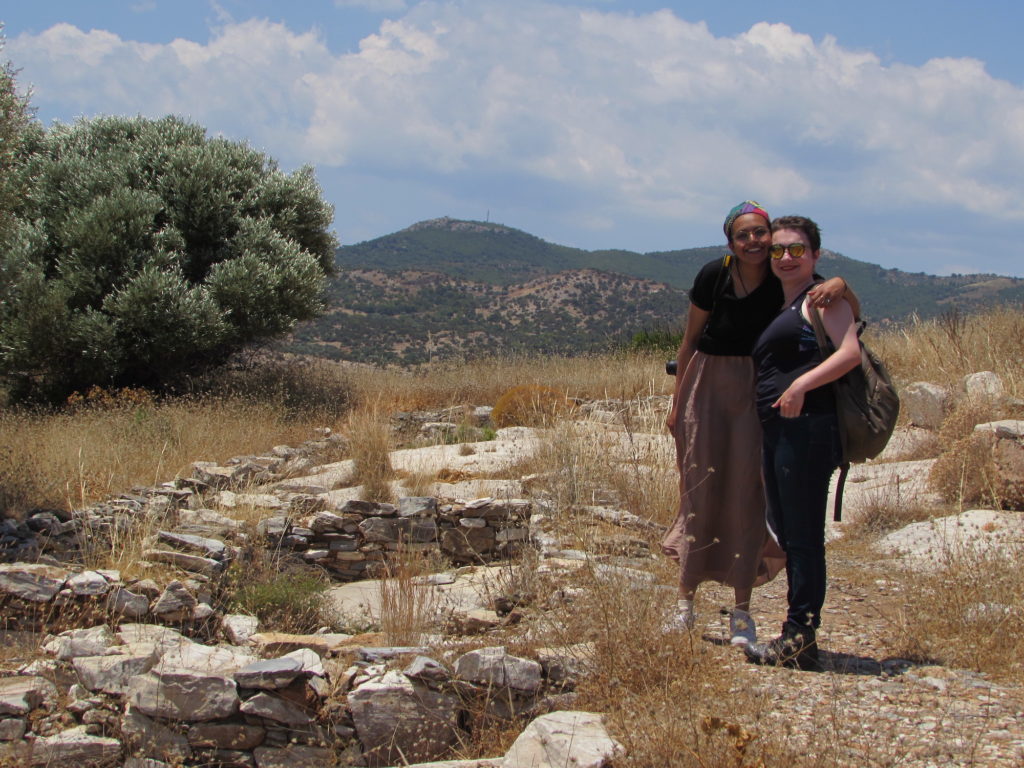
SCM: Those are very perceptive comments for a first-timer! People often say that they like survey archaeology because it resembles hiking but somehow it’s also work. That’s also a great observation about how quickly you can learn to identify things in the field because the process is so hands on. How did you like life on the project otherwise? Any favorite or not-favorite aspects of living with a bunch of crazy archaeology types?
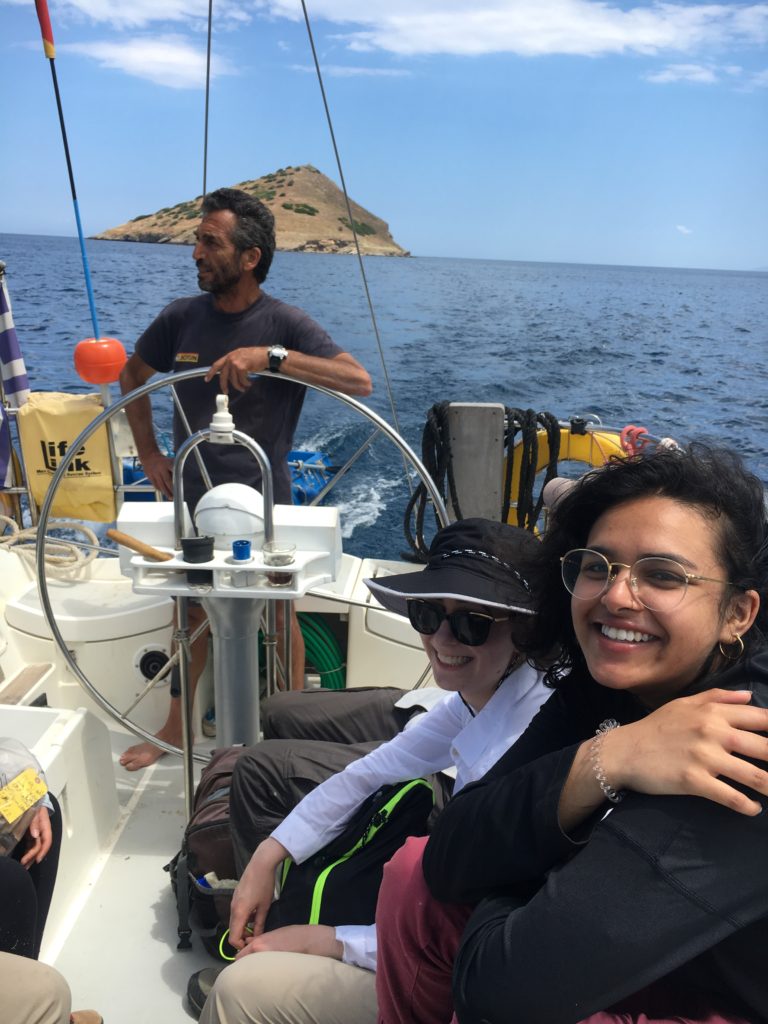
JM: I can’t pinpoint one specific thing that I liked the most, but we had a really great group of people. It was nice to be able to live with them and get off of work and go to the beach or whatever. I will say that we drank way too much beer! Crazy amounts! But we didn’t really get into any trouble. It was so lovely to hang out with them. We probably doubled the profits of this one restaurant Dimitri’s and a great bakery – we ate so much great food.
The only bad thing was that there was this bee that lived in our upstairs bathroom. We could not get rid of that bee! We kept thinking we had gotten rid of it, but it just kept coming back. I think it was coming through the wood in the ceiling or something. That was kind of terrifying. I remember being in the shower and it was out there and it was like that famous scene in Psycho or something. I guess that’s the best I’ve got for a ‘worst’ thing that happened, because everything was great otherwise.
SCM: I guess we’re doing okay if the worst thing that happened all season was a pesky shower bee. It reminds me of the gopher in the movie Caddyshack – this bee basically outsmarted a house full of highly educated university students and always made it back inside.
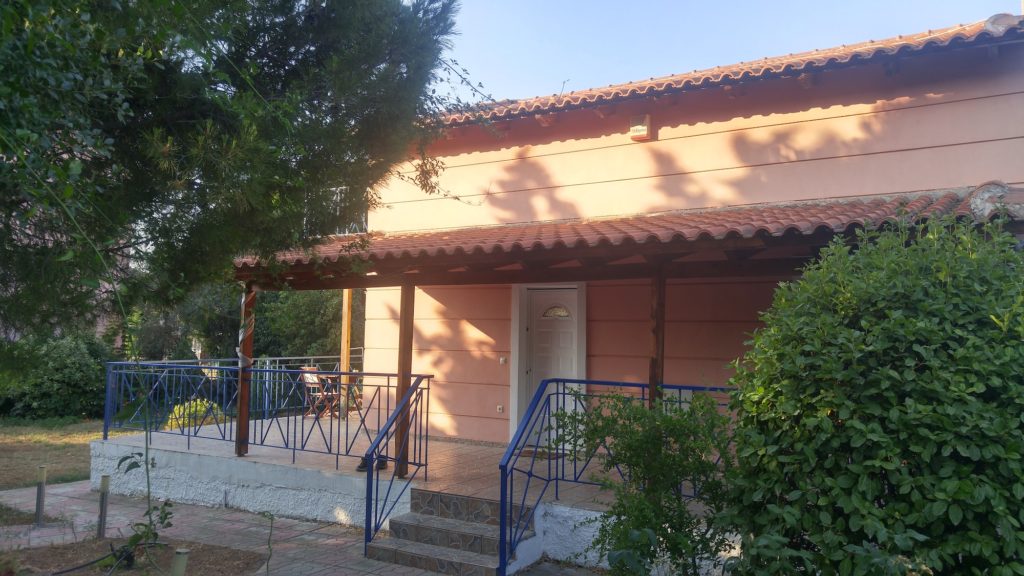
JM: Eventually we just ceded the territory of the washroom! We were like ‘It’s his now – we’ll just use the downstairs one.’
SCM: Bee: 1, Archaeologists, 0! Even though we couldn’t outsmart the bee, we did have a really fun gang of people to hang out and drink too much beer with.
JM: Yeah it was really fun. And nice to have people from all over the place too.
SCM: Let’s hope that we can all be back together out there again sometime, presuming that things will one day return to semi-normal. Speaking of a return to normal, as of today, we in Toronto are finally allowed to go sit on a restaurant patio to eat and drink. I think we were one of the last places in North America where you couldn’t do that until this week! As restrictions here are lifted, is there anything you’re looking forward to doing that hasn’t been allowed since March?
JM: Not one specific thing, but any real human interaction with people who aren’t just my family. Please? I have been staying in touch with people via text and other stuff – some of my friends and I have been watching foreign films together and texting about it. But it will be really, really nice to actually see everyone in person again, even if it’s socially distanced with lawn chairs or something.
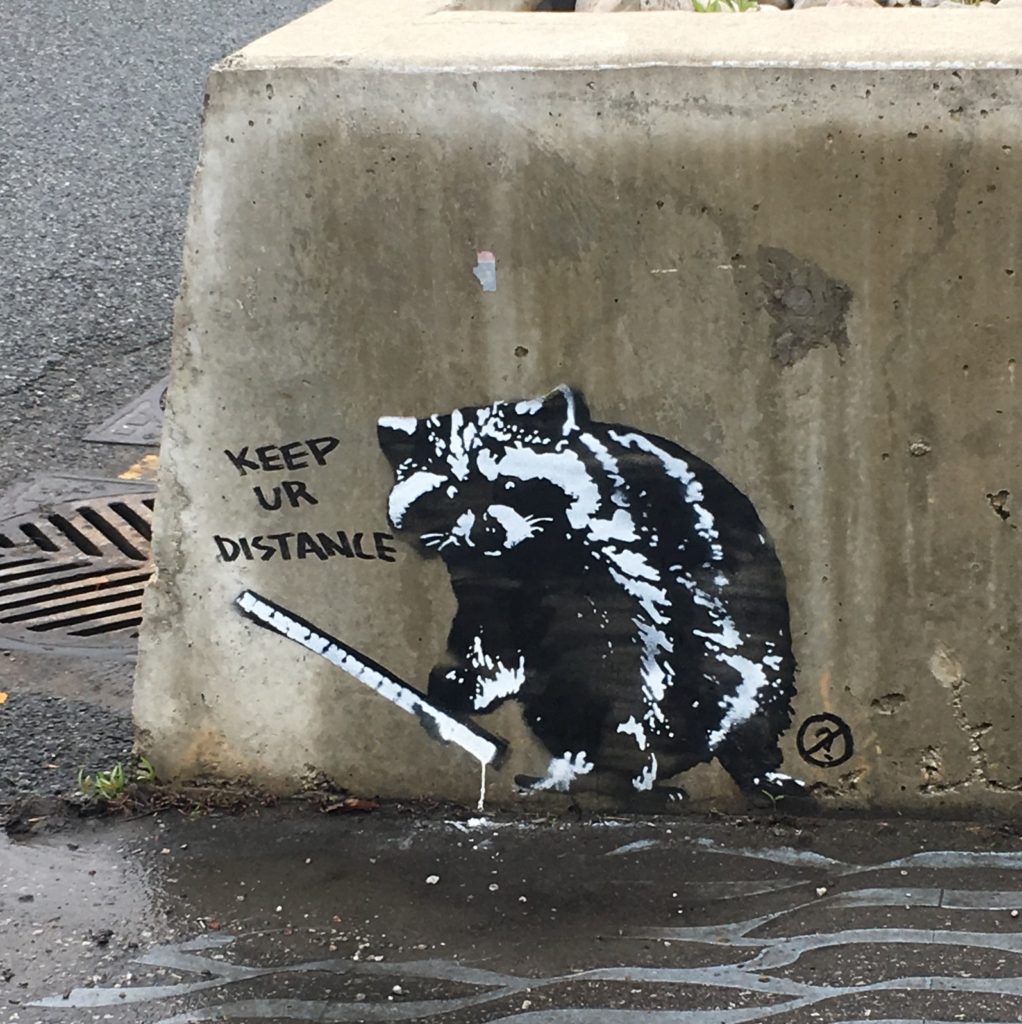
It’s weird for me because this is the first summer that I’m not working. I’ve always done camp jobs in the summer since I was 14, but the camps are not really happening this summer. I mean, they are trying to do some summer camps here, but I took one look at that and thought ‘that is going to be a total mess – there is going to be so much bureaucracy and it’ll be impossible not to get sick from all those germy children – NO thank you.’ So I’ve just been kind of alone with myself and my thoughts and stuck in a house with three other people and we’ve been driving each other mental. It will be nice to hang out with someone else.
SCM: Yes, being around someone outside of the immediate household in actual three-dimensions is a very exciting prospect!
JM: I’ve had enough of these internet conversations – you know ‘can you hear me? is my screen working?’
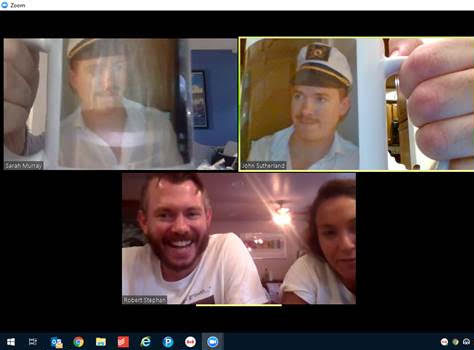
SCM: Haha, tell me about it. I mean, I guess we’re lucky that this is happening at a time with technology that allows us to at least sort of stay connected with others. But it is definitely not the same – a sad, pathetic substitute for actually spending time with friends. And it is very strange to otherwise be stuck inside of your own head with your own thoughts for such a long stretch of time, as you point out. For me this is leading to a slow descent into madness, which is interesting at times, but probably not optimal.
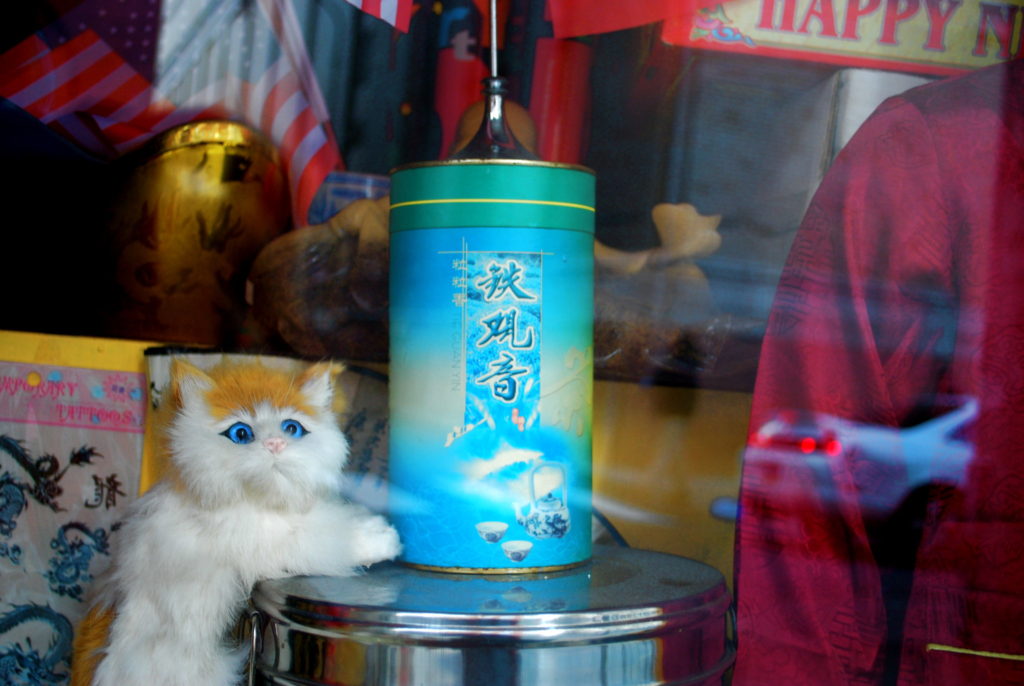
JM: It’s easy to become really lazy and unfocused. Last year we were in Greece working hard in the field for a month, then I flew back home and I went straight to work at my job the next day. And I was taking a night class. That was exhausting! This summer is basically the opposite situation, but I’m emotionally exhausted instead. It’s hard to feel motivated to do anything – I’ve been baking a lot, watching reality tv….
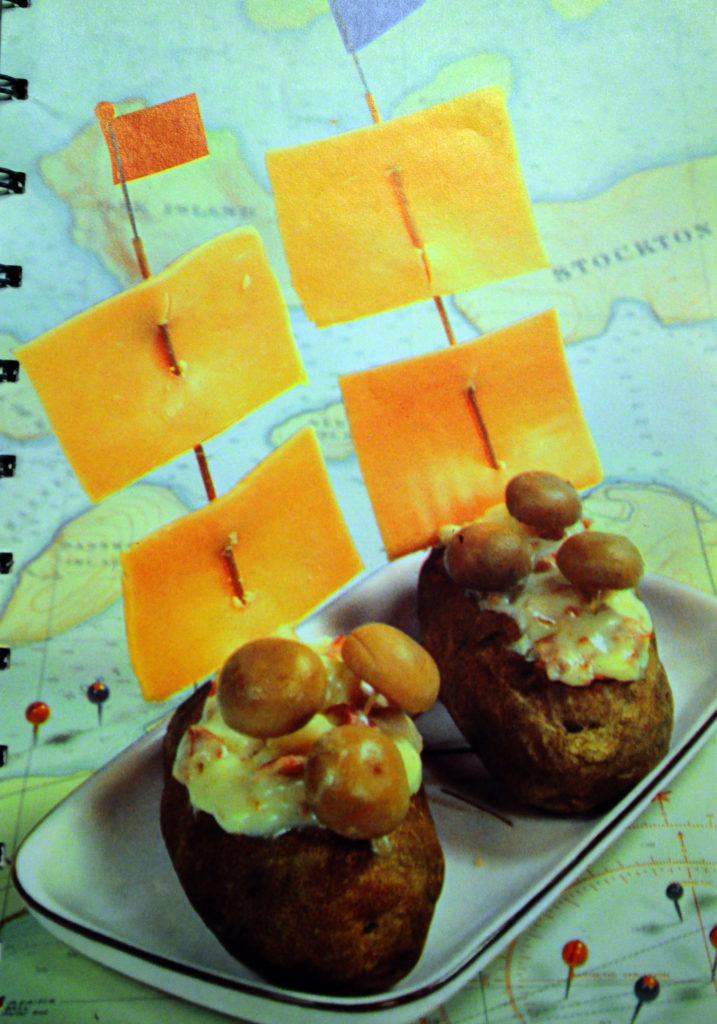
SCM: Anything to get the time to pass and get through the day, right? In April and May when it was still blizzarding and cold and dark here, and things were seeming really dire, I was trying to figure out if there was a way to induce hibernation in humans – you know, so you could just drink some Alice in Wonderland potion and go to sleep for a year and wake up when things were better. I mean, we were kind of hibernating anyway, we just had to be awake and depressed during it.
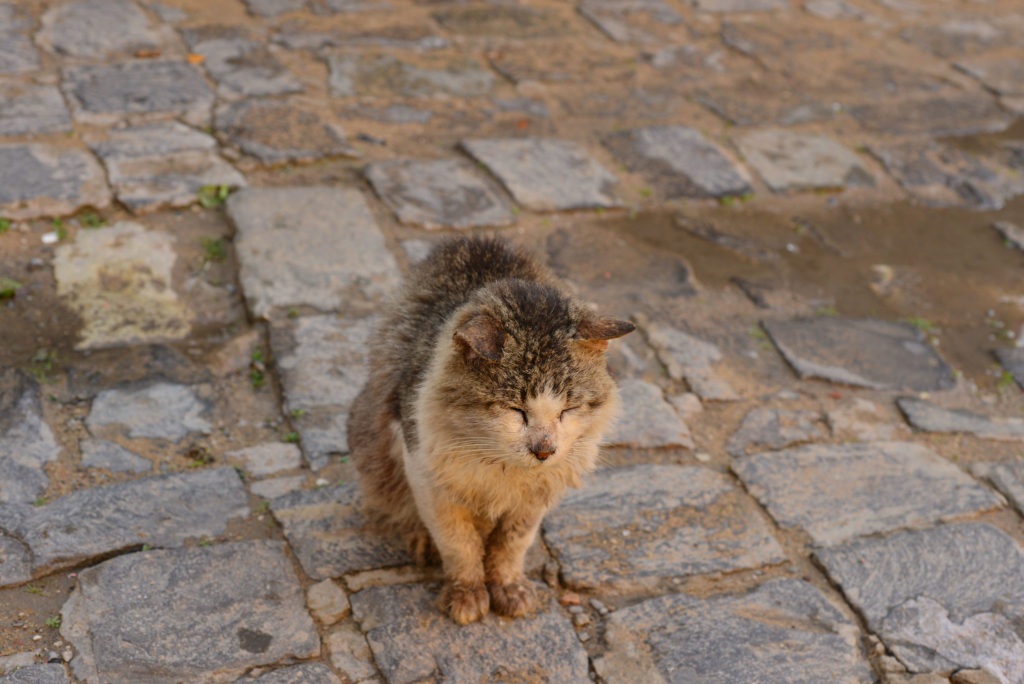
JM: Yeah, instead we have to try desperately to distract ourselves from the disaster of the world…by watching reality tv!
SCM: Exactly. But at first when all this hit you were still in classes – and then there was a sudden move to online teaching. What was that like for you as a student? Was it okay, or are you totally dreading online classes for the fall, too?
JM: It went alright, but I think that was only because I really just had one class that actually continued to meet. In my Latin class we didn’t really meet after classes went online – the teacher just gave us some additional readings and told us to work on our essays with the extra time. My Greek class continued to meet online, which was…interesting. I read something about how tiring it can be to do the Zoom calls, and I really agreed with that, because you very much feel like you’ve got to be on even when you’re not on. You can’t really tell if the screen is showing your face or not. I was in Greek class with our friend Paul (another U of T Classics student) and he must have had some sort of noise in the background, so the screen was stuck on his face the whole time and he had no idea. I texted him and told him that all everyone was seeing was his face! And he was totally freaking out – you can’t sneeze or yawn or zone out or anything. You’ve just got to be focused even when you aren’t. You can’t read anyone’s social cues. But I guess it turned out okay. I only had to do that for a couple of class sessions. Everyone else was just telling us to keep up with readings and do the final assignments. But next year will be interesting.
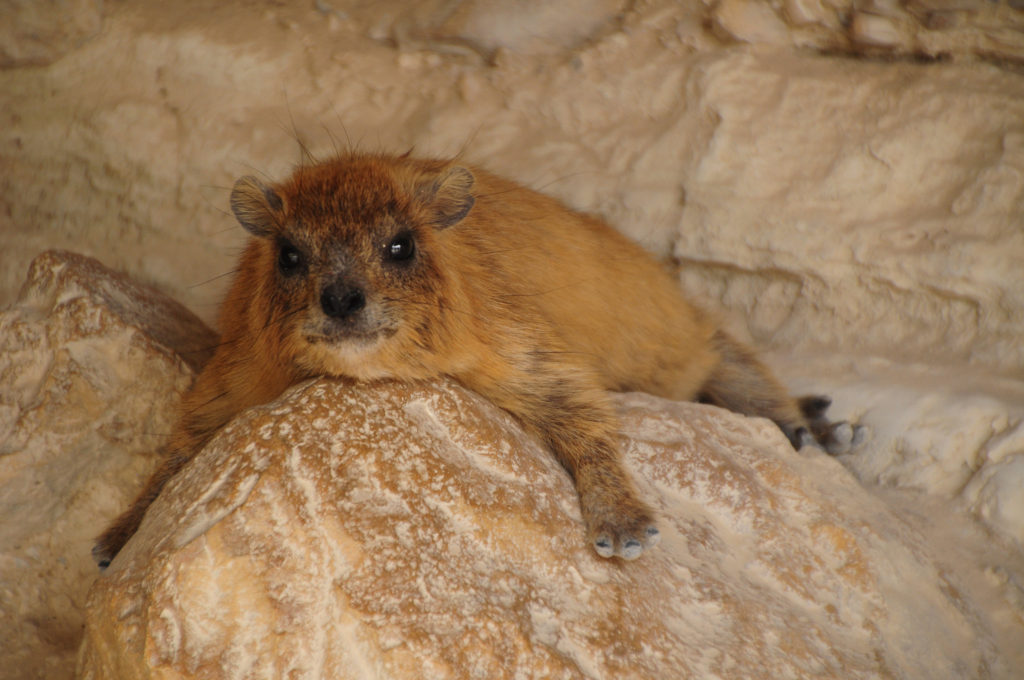
SCM: Right, we were lucky because we only had a couple weeks of online stuff, as opposed to people on the quarter system or with longer semesters. Some of my colleagues in the US had to do a whole 10-week quarter online with very little advanced notice, and I think they were totally miserable.
JM: Thankfully I’m only going part time next year, so I’m not too worried about it. I’ll just have a couple of courses.
SCM: I’m probably more stressed about it than you are! I have no idea what I’m doing.
JM: It must be really hard to lecture through a screen.
SCM: As you said, it’s tough to deal with other people in an educational context without social cues – and if you’re making a prerecorded lecture you have no idea if what you are saying makes sense, because there’s no active feedback at all.
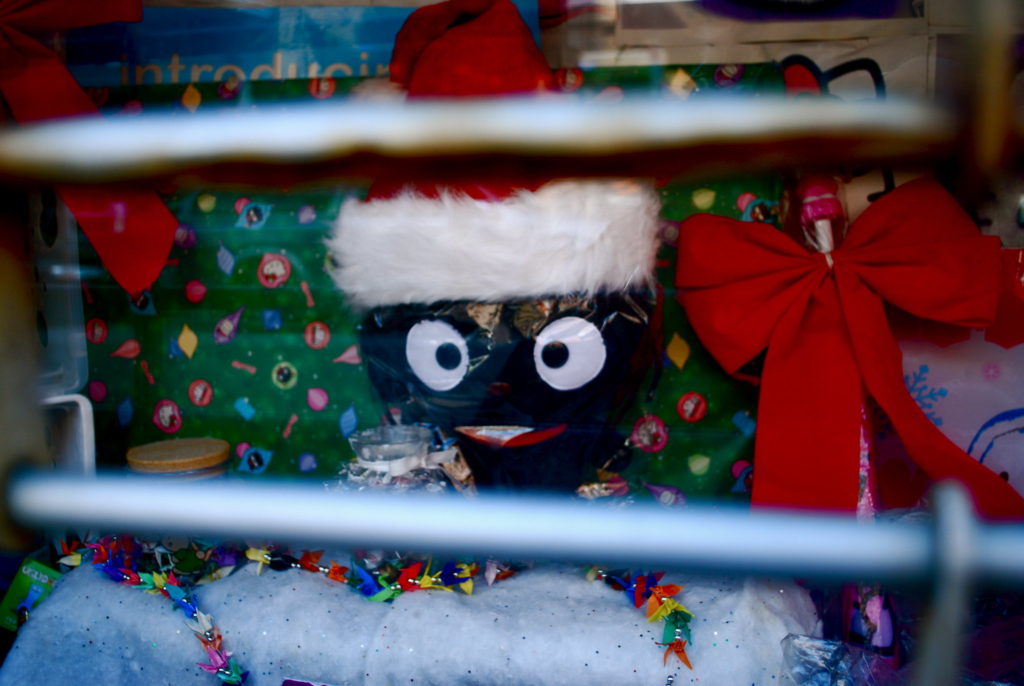
JM: I think it’s easier for science classes. My sister took a summer neuroscience course and it was all prerecorded lectures, but that was fine, because the lectures were just conveying introductory information—facts to memorize, that sort of thing. But it’s hard to imagine teaching something like the optative mood in that way, without being able to go back and forth and make sure the students understand the concept.
SCM: Yeah, I’m not sure how that would work. I will definitely have to spend a fair amount of time this summer getting up to speed on this kind of thing. Okay, last question – other than bemusedly observing how your crazy professors are going to adapt to online teaching – anything you’re looking forward to in your last year at university?
JM: It will be exciting to finish up undergrad – I was actually planning to finish last year, but for various reasons it seemed desirable to stick around and take a fifth year, and I think that ended up being a really good choice, what with everything going on in the world now! I’m going to take a few more language courses and apply to grad school, which is exciting and terrifying. But I’m looking forward to that, and moving on to do more research and writing.
SCM: You’ll be a star! No need to be terrified in your case, at least in an academic sense. And it’ll be good to have you around the department for one more year especially since last year ended with a weird and alienating anticlimax. For now, thanks for taking the time to talk to BEARS blog!
